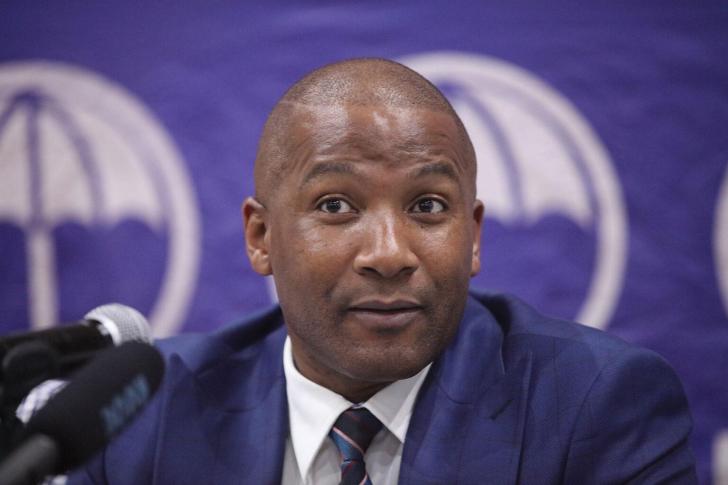News / National
Botswana doctors go on strike
24 Apr 2025 at 06:06hrs |
0 Views

A growing dispute between the Botswana government and the Botswana Doctors Union (BDU) has led to widespread disruptions in emergency healthcare services, with numerous doctors across the country reportedly failing to report for emergency duty.
This development came to light through court filings made by the Permanent Secretary in the Ministry of Health, Professor Oathokwa Nkomazana, in a legal battle between the Directorate of Public Service Management (DPSM) and the BDU. The DPSM, citing urgency, approached the courts seeking an interdict to compel the union to desist from what it terms an illegal strike by its members—doctors employed under essential services.
The urgent application requested that BDU stop encouraging its members to breach their employment contracts by limiting emergency call work, and instead take reasonable steps to ensure that doctors fulfill their essential service obligations. Justice Isaac Bahuma granted an interim order on April 18, 2025, barring further action by BDU and requiring the union to justify why the order should not be made permanent in court this morning.
According to Prof. Nkomazana's affidavit, the doctors' union is protesting what it describes as inadequate remuneration for emergency calls, which currently attract a 15% allowance. Negotiations to improve this allowance have reportedly stalled. In response, the BDU issued a press release on April 3, announcing that its members would reduce their emergency call participation to just one call per month—approximately 26.4 hours—after a 72-hour ultimatum to the government expired.
Subsequent press releases reiterated this stance, instructing members to limit their work and ensure only minimal staff coverage at hospitals during emergency calls. Nkomazana stated that such actions constituted a deliberate refusal to perform contractual duties and posed significant risks to public health.
She detailed multiple instances where doctors failed to attend emergency calls across various facilities, including Letsholathebe II Memorial Hospital, Nyangabgwe Hospital, Deborah Retief Memorial Hospital, and Princess Marina Hospital, among others, between April 8 and April 14.
In one particularly controversial communication dated April 16, the BDU advised its members that they had completed their monthly emergency call requirements and were therefore "released to enjoy the holidays." Nkomazana argued this message was an overreach of the union's authority, stating, "The respondent isn't their employer and cannot release or excuse its members from performing or responding to emergency calls."
Nkomazana emphasized that the refusal to perform emergency services constitutes an unlawful strike, asserting that doctors are both paid and legally obligated to provide such services. "There is clearly an impasse and dispute between the parties," she said, urging the court to recognize BDU's conduct as a violation of the Trade Disputes Act and public service contracts.
As the legal battle continues, the health sector remains under strain, with patients across Botswana facing delayed or unavailable emergency medical attention. The outcome of today's court proceedings is expected to set a critical precedent for the future of labour relations in the country's public health sector.
This development came to light through court filings made by the Permanent Secretary in the Ministry of Health, Professor Oathokwa Nkomazana, in a legal battle between the Directorate of Public Service Management (DPSM) and the BDU. The DPSM, citing urgency, approached the courts seeking an interdict to compel the union to desist from what it terms an illegal strike by its members—doctors employed under essential services.
The urgent application requested that BDU stop encouraging its members to breach their employment contracts by limiting emergency call work, and instead take reasonable steps to ensure that doctors fulfill their essential service obligations. Justice Isaac Bahuma granted an interim order on April 18, 2025, barring further action by BDU and requiring the union to justify why the order should not be made permanent in court this morning.
According to Prof. Nkomazana's affidavit, the doctors' union is protesting what it describes as inadequate remuneration for emergency calls, which currently attract a 15% allowance. Negotiations to improve this allowance have reportedly stalled. In response, the BDU issued a press release on April 3, announcing that its members would reduce their emergency call participation to just one call per month—approximately 26.4 hours—after a 72-hour ultimatum to the government expired.
Subsequent press releases reiterated this stance, instructing members to limit their work and ensure only minimal staff coverage at hospitals during emergency calls. Nkomazana stated that such actions constituted a deliberate refusal to perform contractual duties and posed significant risks to public health.
She detailed multiple instances where doctors failed to attend emergency calls across various facilities, including Letsholathebe II Memorial Hospital, Nyangabgwe Hospital, Deborah Retief Memorial Hospital, and Princess Marina Hospital, among others, between April 8 and April 14.
In one particularly controversial communication dated April 16, the BDU advised its members that they had completed their monthly emergency call requirements and were therefore "released to enjoy the holidays." Nkomazana argued this message was an overreach of the union's authority, stating, "The respondent isn't their employer and cannot release or excuse its members from performing or responding to emergency calls."
Nkomazana emphasized that the refusal to perform emergency services constitutes an unlawful strike, asserting that doctors are both paid and legally obligated to provide such services. "There is clearly an impasse and dispute between the parties," she said, urging the court to recognize BDU's conduct as a violation of the Trade Disputes Act and public service contracts.
As the legal battle continues, the health sector remains under strain, with patients across Botswana facing delayed or unavailable emergency medical attention. The outcome of today's court proceedings is expected to set a critical precedent for the future of labour relations in the country's public health sector.
Source - online
Join the discussion
Loading comments…
































